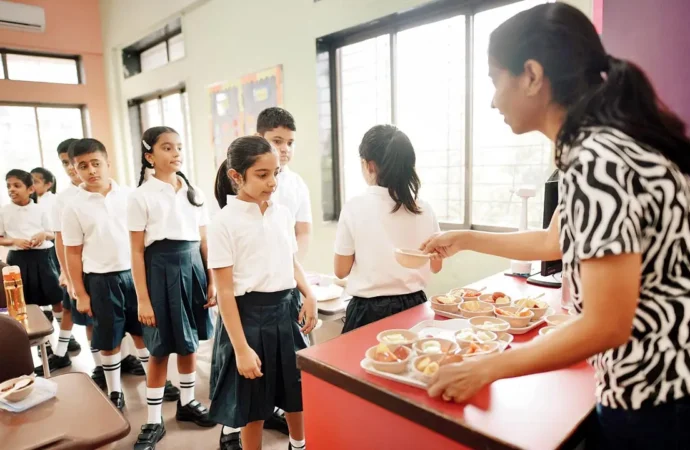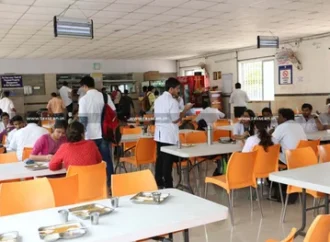Key Development
After a series of food poisoning incidents linked to mid-day meals, the Maharashtra government has introduced a Standard Operating Procedure (SOP) to strengthen food safety in schools. The move follows a recent case in Buldhana where 13 tribal girls fell ill after consuming contaminated food. The SOP outlines clear roles for schools, local authorities, and food suppliers to prevent such lapses and ensure the safety of meals served to children.
Schools Must Enforce Strict Food Safety Measures
Under the new SOP:
- School Management Committees must inspect the quality of grains received from suppliers.
- Cooks and support staff must undergo monthly health check-ups.
- Headmasters must taste each meal before serving and preserve a food sample for 24 hours.
- Block Education Officers must conduct monthly inspections of food storage godowns.
Authorities will fine food godowns ₹50,000 if found unhygienic. A second violation will draw a ₹1,00,000 fine. The SOP also bans schools from serving meals prepared outside their premises.
Clear Protocol for Food Poisoning Cases
If students show symptoms of food poisoning:
- Staff must isolate the affected students and provide immediate medical care.
- Authorities—including the village head and police—must be informed.
- Food and water samples must be collected for lab testing.
- If tests confirm contamination, the supplier will face criminal charges, and payment will be withheld.
Operational Concerns Remain
While school heads have welcomed the SOP, some have raised concerns about its practical implementation. They pointed out that grain deliveries often arrive without prior notice, making thorough inspection difficult. Many schools may also struggle to allocate dedicated time for proper checks. Despite these challenges, the SOP aims to improve oversight and protect the health of children relying on the mid-day meals scheme.
Source: The Times of India
 Food Manifest
Food Manifest 


















